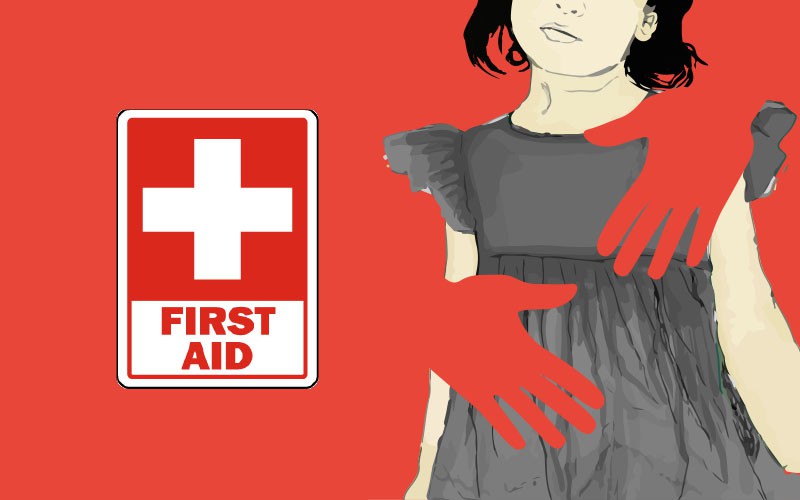Rape, or any form of sexual abuse, is not sex. Sexual abuse is about power and control. Sexual abuse was just one of the ways this need for power was used to achieve. The trauma of such an act can be lifelong and very dangerous if not dealt with properly. The brain, heart, and body can be reshaped in the face of trauma. Scientific research has also shown that such childhood experiences have a direct effect extending beyond the individual to relational dynamics as adults. Adult relationships can be paralyzed by emotional and sexual dysfunctions to say the least.
Child sexual abuse is more common than one would like to imagine. There are as many chances it can come from a close family member as it is from a stranger. As a parent, it can be hard to grasp that your child has had to go through such a violent experience. No parent wants that for their child.
However, it is equally important to understand that how a parent handles the situation will either pave way for healing to occur, or make it worse as a parent is the primary source of love and safety for a child. Also, since there is no social and legal aid to properly support survivors of sexual abuse, be it child or adult, here are important steps that should be taken:
Believe Them
It is sometimes easier to deny what a child is saying than to believe such an event has happened. Think about it this way, it is a parent’s responsibility to provide emotional, mental, physical, and psychological care. By disregarding or disbelieving them, are you providing required care for that child?
It would be helpful for you to learn behavioral, physical, and verbal symptoms for further proof, or in case the child is too shy or fearful of speaking. Here is a trusted resource for symptoms and signs of abuse.
Avoid Emotional Outbursts
Your child should not have to deal with your emotional breakdown or anger outbursts. Remember, the capacity of a minor is different than that of an adult. Anger will increase their fear and distrust in the world. What they need the most is love and reassurance that things will be okay. They need to feel safe to put their survival guard down, physically and emotionally. Try to postpone your emotional reactions to when you are alone, and listen calmly, without judgment for as long as they need.
Avoid Asking Leading Questions
“A lot of people want to believe that it is a specific person, or scenario, so they would ask questions framed to lead to that, and that is not helpful. Think of the child’s age. If you are looking for abstract information from a child, that is complicated. Ask age-appropriate questions”, states Laura McLaughlin, LMFT, LMHC. Ask open-ended questions and do not include any assumptions or information not mentioned by the child. Think about the question you will ask. Will your child have to reply with a simple ‘yes or no’? If so, these are closed-ended questions and are quite leading. Reframe the wordings to turn them into questions that open a space for the child to speak about what actually happened – their own experience.
Remove the Identified Person from Surrounding
This can be hard if the identified person is an immediate family member. However, in order to create a safe space for the child to survive, they should not be in the same household or environment. You will be putting the child in continuous danger.
Identify Immediate Needs
Checkups for physical, emotional, and psychological damage need to be cared for immediately. The longer a parent waits, the deeper the trauma goes. Medical checkups can be taken care of by licensed physical and mental health professionals such as gynecologists, urologists, [trauma-focused] child psychotherapists, marriage and family therapists, and other related specialists within the same circle.
Consider How to Deal with Social and Family Reactions
Prioritize the child’s emotions. An incident like that is quite confusing, humiliating, and violating for the child. Their personal space, physical, and emotional health have all been violated here. How their surroundings respond and react to this can make or break a child. Do not overwhelm the child with other people’s reactions. Respect the child’s privacy and boundaries. They do not need more grief and worry than they are already dealing with.
Redefining Boundaries and Other Risky Behaviors
Examine family norms that may confuse children, such as sitting on an uncle’s lap or pressuring a child to kiss an adult hello when they don’t want to. A lot of cultural norms go against consent and actually leave the child vulnerable to dangerous situations.
*If you are a parent of a minor who has survived sexual abuse of any sort, remember to seek emotional and psychological support from a mental health professional as well. Trauma work can be hard to handle. Self-care is necessary to be able to be there for your child.
Further Web Resources:
The National Child Traumatic Stress Network
Rape, Abuse & Incest National Network (RAINN)
Dana Sarhan, MS, MFT- Couples and Sex Therapist, danasarhan.com
Contact email: info@danasarhan.com


